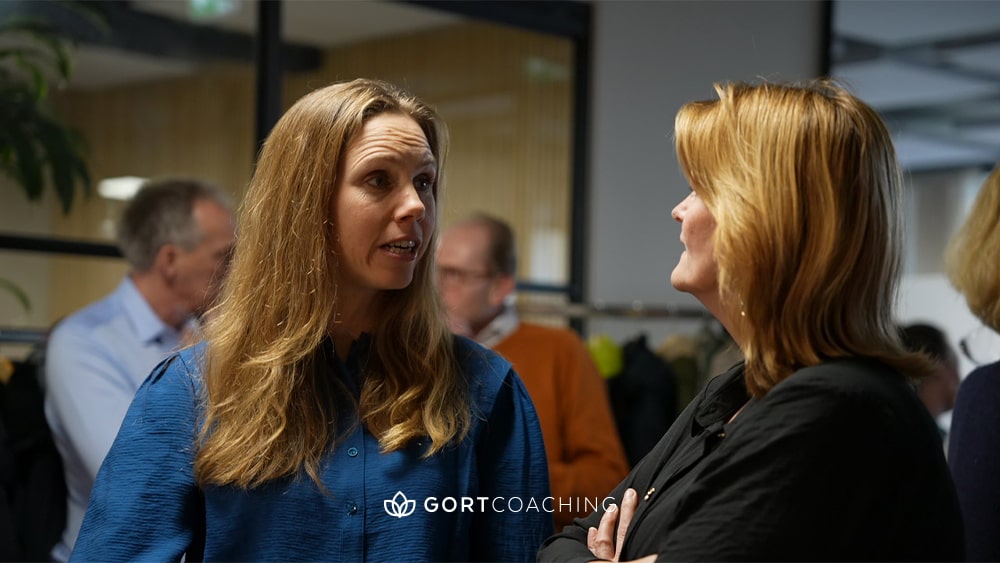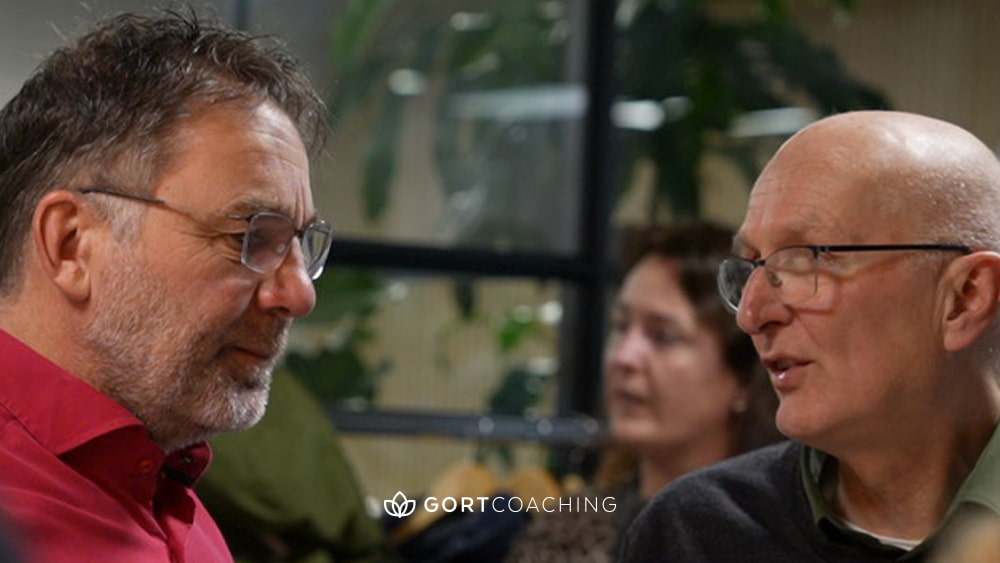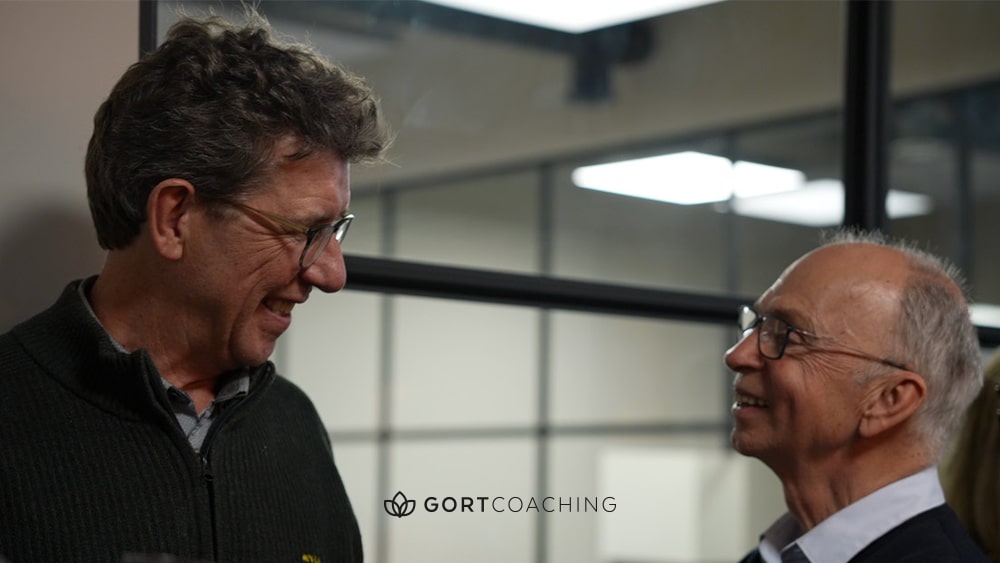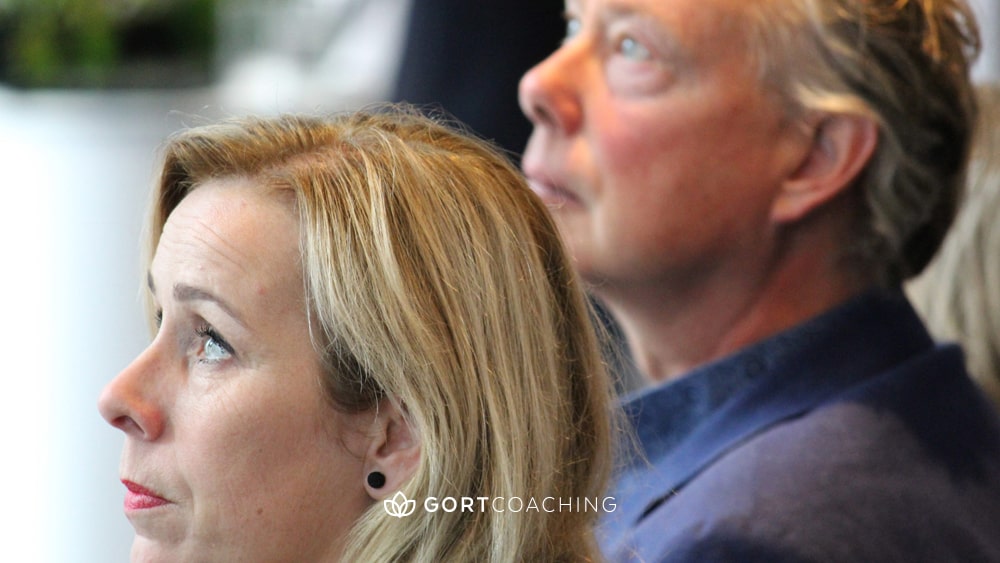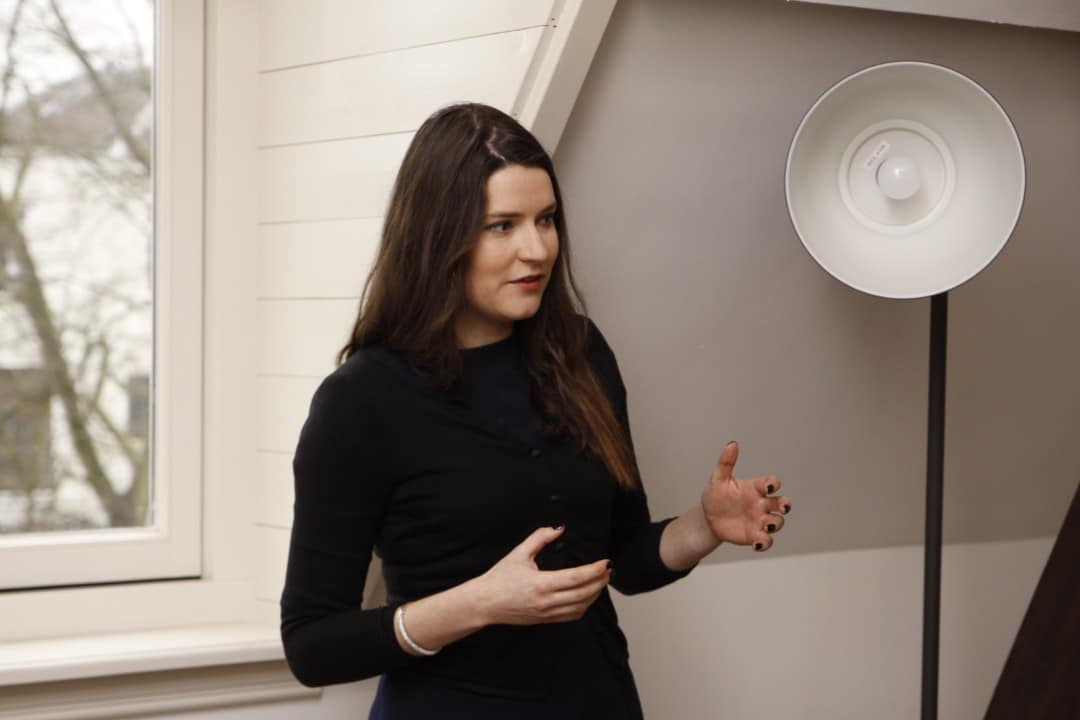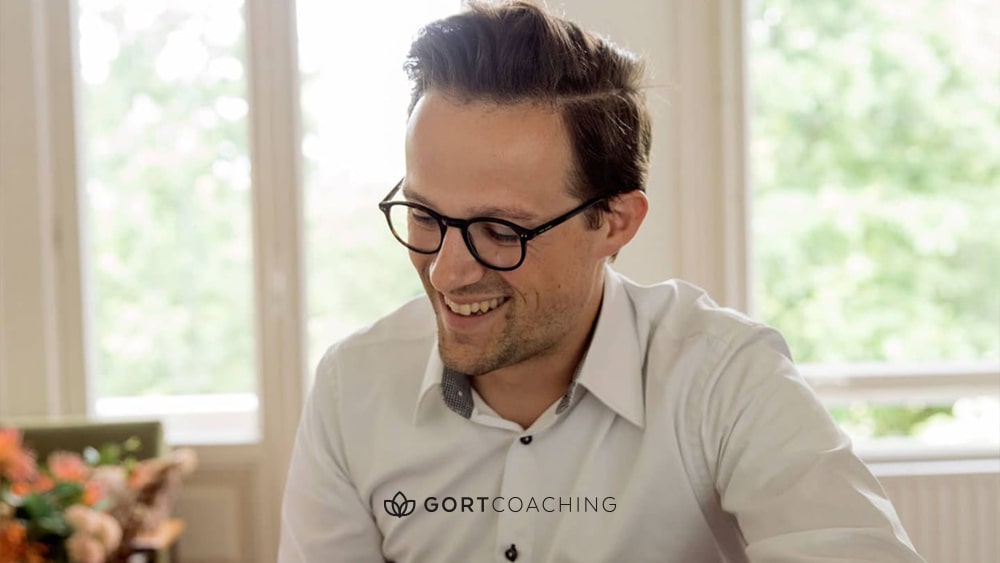Choose your coach
At GORT® coaching, you are assured of quality: all our coaches meet more than 20 strict quality standards.
Choose your coach here

You will only find certified professionals with us.
 Senior Coach
Senior Coach
Enthusiastic, honest, analytical, and results-oriented.
Enthusiastic, honest, analytical, and results-oriented.


Is a Coach Indispensable for Working Professionals?
As a working professional, you are often busy with your career, but it can be challenging to keep everything in balance. A coach can help you navigate challenges in your work, personal life, and in developing your full potential. Whether you are looking for more focus, better work-life balance, or strategies to enhance your leadership, a coach provides guidance that helps you overcome obstacles and achieve your goals.
What Can a Coach Mean for You?
- Clarity and Focus: Coaching helps you clarify what is important to you, so you can take your next step with focus and confidence.
- Better Decision Making: A coach helps you look at your situation with a fresh perspective, enabling you to make well-informed choices.
- Improved Performance: Through coaching, you improve your performance both in your career and personal life. You learn techniques that help you bring out your best self.

Top 20 Most Mentioned Reasons to Hire a Coach
- Looking for a new challenge in life/work.
- Work-related burnout.
- Self-confidence, time management, standing up for oneself.
- Stress due to impending dismissal.
- Mapping out competencies.
- Difficulty with job applications.
- Difficulty focusing.
- Wanting to profit from talents.
- Wanting to acquire a leadership position through clearer/assertive communication.
- Lack of inspiration and motivation.
- Reluctance to take on leadership despite being given the role.
- Not feeling well.
- No longer finding satisfaction in their job and not knowing what they want.
- People with an outplacement budget who want guidance for the next step in their career.
- Quarter-life crisis: just graduated or working for a few years, what do I want?
- Job seekers. Unemployed for a long time. Need help with CV & applications.
- Career advice/reorientation.
- Mental & physical complaints due to stress. GP cannot medically explain the complaints.
- Managers struggling with communication and wanting to develop certain skills.
- People seeking life coaching to get more out of their life or work. Is this all? Motivated to develop.

Tips for Choosing the Perfect Coach
Choosing the right coach is a personal decision that strongly depends on your own needs, preferences, and goals. Here are a few tips to help you with this important choice:
- Define your goals in advance: Know what you want to achieve with coaching. This will help you look for coaches who have experience with similar challenges or goals.
- Research the coach’s specializations: Every coach has a unique set of specializations and areas of expertise. Choose a coach whose specializations match your needs and goals.
- Read the coach’s entire profile: The way a coach communicates is important for building an effective coach-client relationship. Trust your feelings when reading the profile; often you will know right away if it will work for you.
- Schedule an orientation meeting: This gives you the chance to get to know the coach better and see if you feel comfortable with them.
- Trust your intuition during the free orientation meeting: Your intuition can provide valuable insights when choosing the right coach. If you feel comfortable with a coach and feel that they truly understand and support you, that’s a good sign.
Remember that choosing the right coach is a process. Take your time to consider your options and trust your own judgment.
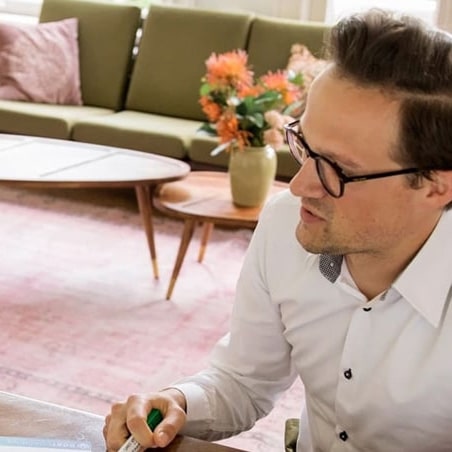
Which Type of Coach Suits You Best?
At GORTcoaching, we offer coaching programs that perfectly match your goals and needs. Below you will find examples of the coaching we offer and how they align with different objectives:
Burnout Coach
For whom? If you notice that stress is negatively affecting your work or personal life, or if you are recovering from a burnout.
What to expect: Guidance to reduce stress, prevent burnout, and restore your balance.
Executive Coach
For whom? Executives or senior professionals who want to enhance their business and personal qualities and grow strategically.
What to expect: A highly experienced coach who has also worked at a senior level in the business world. This allows you to be yourself and really tackle your business and personal challenges.
Life Coach
For whom? Professionals who want to find more direction, balance, and self-confidence in their lives.
What to expect: Guidance to clarify your goals, overcome personal obstacles, and steer your life in the desired direction.
Career Coach
For whom? Professionals who need self-insight, for example, when making important career choices or discovering a new career path.
What to expect: Coaching that helps you discover your strengths, motivations, and values, so you can make more conscious choices in your career.
Job Application Guidance
For whom? Professionals who want to prepare for a job application or accelerate their career by securing a new position.
What to expect: Guidance in optimizing your CV, improving your application skills, and preparing for a powerful job interview.
What do the levels mean?
Read here to understand the differences between a junior, medior, senior, and top-level coach.
- A new coach/psychologist has up to 2 years of work experience.
- A medior coach/psychologist has 2 to 7 years of work experience.
- Both levels have completed training at the practitioner level and engage in further education, professional development, and peer supervision.
- All senior coaches and psychologists have a senior accreditation level with more than 5 years of work experience.
- The senior level is the most chosen option by working professionals. We have already provided valuable coaching programs for more than 20,000 clients.
- Top-level coaches and psychologists are senior/master accredited, have at least 10 years of work experience, and have performed exceptionally well on evaluation forms and other GORT® KPIs for at least 1 year.
- Additionally, a top-level coach/psychologist is a good sparring partner at the management level.
- Top-level is more frequently chosen by: managers, doctors, executives, lawyers, entrepreneurs, CFOs, bank employees, and IT specialists.
Our promises to you
All GORT coaches are multiply certified. We are the only coaching agency in the Netherlands where all senior and top-level coaches are certified at the senior level by NOBCO/ICF.
Out of love for this profession, our quality manager helps coaches continuously improve quality on 20 points so that you always receive the very best coaching!
We guarantee you: “Your coaching sessions at GORTcoaching are simply amazing, or you get your money back.” 100% risk-free. We ♥ coaching!

This is how the FREE orientation meeting with the coach works
The orientation meeting is often a pleasant step in your search for the right coach. During the introduction, you get to know each other better and discover if there is a good connection between you and the coach. This conversation provides the space to discuss your goals, needs, and expectations. At the same time, the coach explains his or her methods and approach. Do you have questions about the coach’s experience or specialization, or how he or she can best support you? The orientation meeting is the perfect moment to ask all your questions and make an informed decision.
Is there a connection between you and the coach?
The orientation meeting is the moment to feel if there is a connection between you and the coach. A good coach-client relationship is based on trust and mutual respect, and that starts with a positive ‘click’. Be open and honest with your coach and tell your coach what goals you want to achieve. The coach is there to support you, and it should feel completely right.
What to do if you notice that the coach is not a good fit for you?
Choosing a coach is a personal decision. It may happen that you realize the chosen coach is not quite the right fit for you. This is completely normal. We encourage you, if the current match does not feel right, to contact us at 088 170 1500. We will then look together for a better match within our network of coaches. Choosing the right coach to support you is an important part of the overall coaching process. Take the time you need to find the right person.

Practical Information
At GORTcoaching, we ensure that your coaching process runs effectively. Here’s what you can expect:
- Duration of the process: The coaching process usually consists of 5 to 10 sessions, depending on your goals. Sessions often take place every 2-3 weeks, giving you enough time to reflect.
- Session length: Each coaching session lasts on average between 1 and 1.5 hours. Power coaching lasts 2 hours per session. You can determine the length of your sessions in consultation with your coach.
- Location: Sessions can take place both indoors and outdoors. Some coaches offer walking coaching, which can help you think clearly in a natural environment.
- Costs: The orientation meeting is always free and without obligation. You can find the costs and reimbursement options here.
- Methods: We use various proven methods tailored to your needs, such as EFT, ACT, Mindfulness, or CBT. If you have a specific preference, you can select it in the filter.
- Evaluation: At the end of the process, we will evaluate your progress and goals together. If desired, you can schedule a follow-up meeting after some time.
We ensure that you always receive the right support and that your coaching process works for you!
Tips for preparing for your first coaching session
You have found your coach and are about to start the coaching process. Good preparation can help you get the most out of this experience. Here are some tips to prepare for your first session:
Reflect on your goals
Why did you decide to seek coaching? What do you want to achieve? Having clear goals and writing them down before your first session will help you and the coach make it a success. If you have no idea what your goals are, you can clarify them with the coach during the first session.
Be open to the process
Coaching often involves exploring new ideas and perspectives. It is important to be open to new possibilities and be willing to step out of your comfort zone.
Be active after the session
To get the most out of coaching, it is best to think a lot about your goals after and before the sessions. Think about listening to podcasts, keeping a journal, and asking the coach for exercises between sessions. This way, you stay in motion and increase the impact of the coaching.
Change takes time
Keep in mind that change takes time. Not everything needs to be solved in one session. It may take a while before you see the results of your insights and actions, so be patient with yourself and the process. Give yourself the time to come to the right insight.
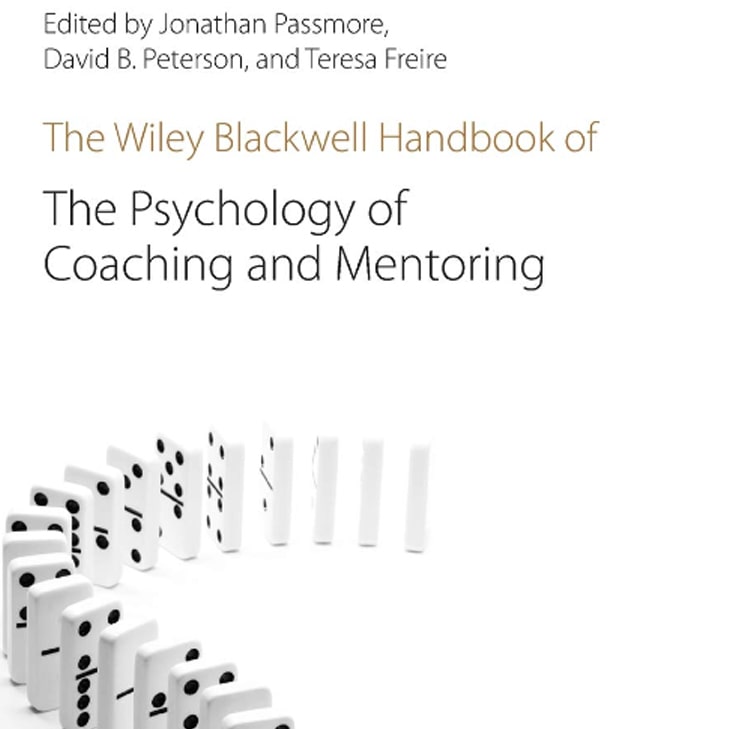
The Science and Coaching
If you are interested in the scientific side of coaching, we recommend this book: The Wiley-Blackwell Handbook of the Psychology of Coaching and Mentoring. This is the foundational book used by scientifically trained psychologists in their studies and contains most of the research on the effects of coaching.
In summary, scientific research has repeatedly shown that coaching has strong positive effects. It positively influences performance and skills, coping, well-being, work attitude, and self-regulation. Coaching impacts:
- Reduction of psychological complaints such as stress and burnout.
- Increase in positive feelings such as job satisfaction.
- Enhancement of skills and the effectiveness of professionals. For example, in the areas of study skills, goal achievement, and effective leadership.
Source: Theeboom, T., Beersma, B., & van Vianen, A. E. (2014). Does coaching work? A meta-analysis on the effects of coaching on individual level outcomes in an organizational context.

The Effect of Coaching on Mental Health
Scientific research (Theeboom, Beersma, & Van Vianen, 2014) shows that coaching offers significant benefits both mentally and professionally. It not only helps reduce stress and burnout but also contributes to a greater sense of well-being and effectiveness.
Stress Reduction and Mental Balance
Coaching provides a safe space to discuss worries and anxieties and to learn strategies for managing stress. This can reduce psychological complaints and contribute to a healthier work-life balance.
Personal Growth and Self-Confidence
Coaching promotes self-confidence, self-awareness, and boundary-setting. It supports you in identifying values and developing skills, leading to a greater sense of satisfaction and control over your life.
Career Development and Effectiveness
By providing insight into strengths and goals, coaching helps improve your performance and leadership. This makes it a powerful tool for both personal and professional growth.
Specific Techniques for Stress Management
Many coaches use techniques such as mindfulness to reduce stress and build resilience. While coaching can be very effective, it is not a substitute for therapy for serious psychological issues.
Would you like to discover how coaching can help you? At GORTcoaching, we are ready to guide you towards a healthier, happier, and more successful life.
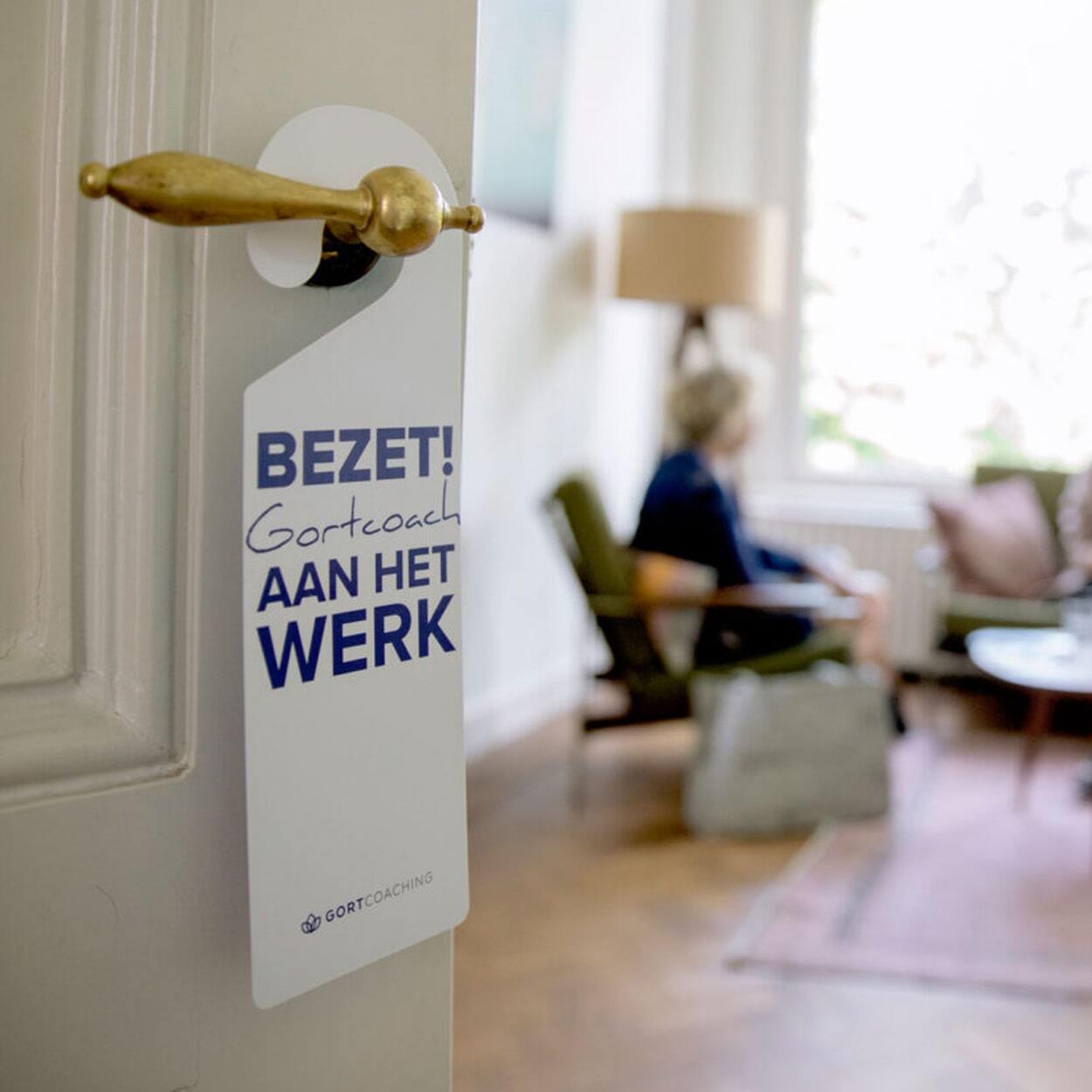
What is coaching? An introduction to the concept and practice
Coaching is a guidance process that focuses on helping people achieve personal or professional goals. In the coaching process, the coach assists with the necessary changes, while the client is responsible for the steps to be taken. It is a collaboration where both parties play an important role.
Coaching covers a wide range of topics
Coaching can cover a variety of topics, such as developing new skills, increasing self-awareness, achieving career goals, or improving personal relationships. Although coaching is applied in different contexts, the central goal is always to help you reach your full potential.
A coaching process tailored to your needs
The coaching process can be flexible and adaptable, depending on your needs and goals. It can be short-term or long-term and can be delivered in personal sessions, group meetings, or online.
GORTcoaching, as an experienced organization in the field of coaching, uses a client-centered approach, focusing on individual needs and goals. We work with a wide range of coaches to ensure we can meet different needs and provide the right support for everyone.
The importance of a coach: benefits of personal and professional coaching
A coach helps and encourages you to achieve personal goals and growth. On a personal level, a coach can help you gain more insight into yourself, your thoughts, your emotions, and your behavior. This allows you to deal more effectively with challenges, make better decisions, and experience more satisfaction and happiness in your life. Professionally, a coach can support you in developing new skills, increasing your self-confidence, improving your performance, and achieving your career goals. A coach can also help you become a better leader, communicate more effectively, manage stress better, and prevent burnout.
Developing by stepping out of your comfort zone
Moreover, a coach can challenge you to step out of your comfort zone, discover and develop your strengths, and broaden your perspectives and possibilities. This can lead to more innovation, creativity, and success in your life and work. Having a coach is an investment that can provide valuable and long-lasting benefits in many ways. At GORTcoaching, we have a wide range of experienced coaches who can help you on your unique journey of growth and development.

DO YOU HAVE ANY QUESTIONS?
I can help you find the right coach and schedule a free orientation call for you.
088 170 1500
I am happy to help!

 Nederlands
Nederlands Vlaams
Vlaams Deutsch
Deutsch


